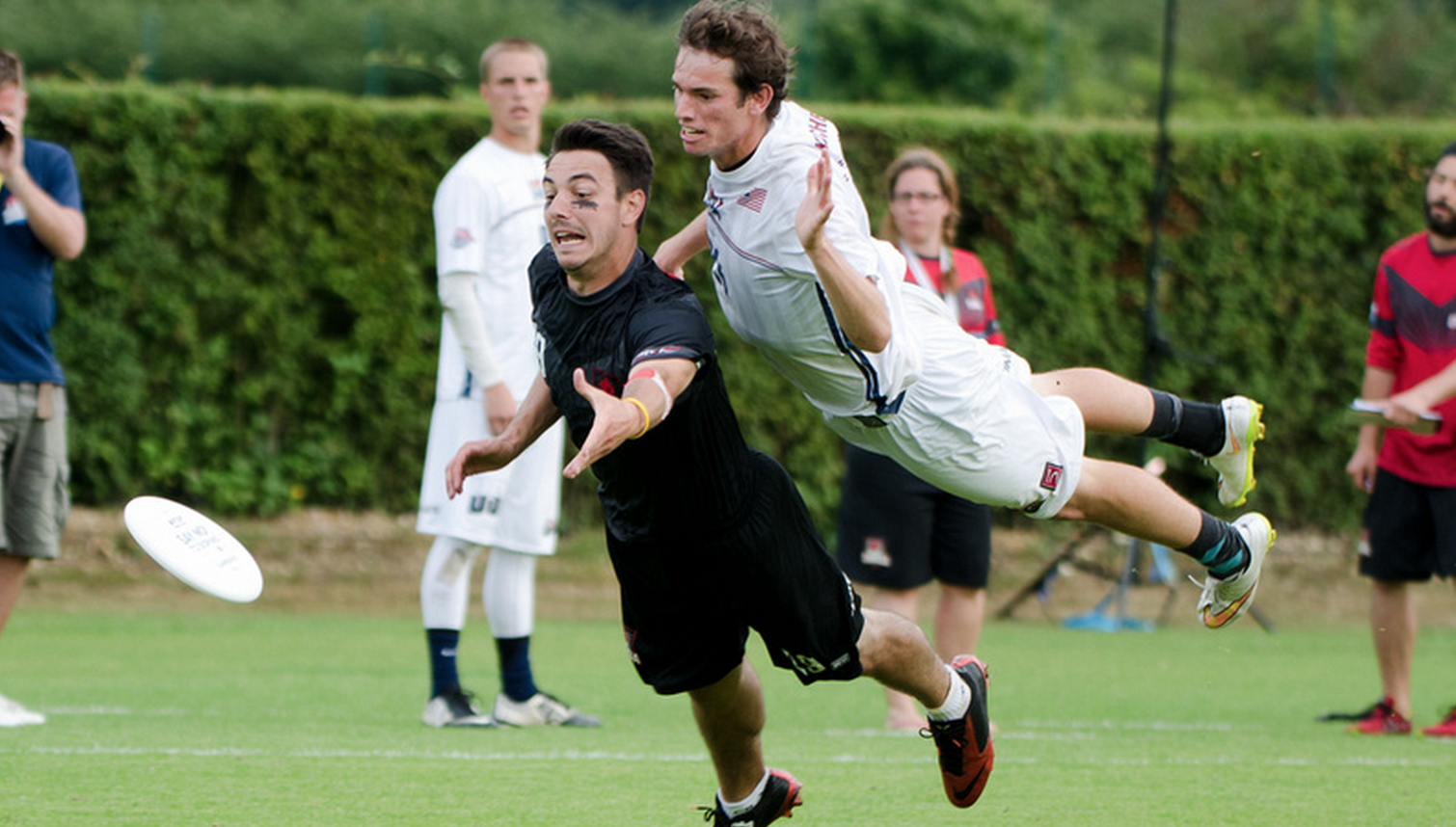Team USA crossed the line in the U23 Open final. But they reeled it back in.
July 30, 2015 by Charlie Eisenhood in Opinion with 41 comments

In the U23 Worlds Open final between the United States and Canada, the two North American powerhouses were locked in a close battle. The US side — known for its physical defense — started to get too aggressive as the game stayed tight into the early part of the second half.
Tempers were already rising when these two clearly dangerous plays — from Dalton Smith and Chris Kocher (both in white), respectively — had the Canadian sideline seething.
Everyone was hot.
After the conclusion of that point (the US scored to go ahead 13-10), the US’ Spirit Captain, Travis Carpenter, initiated a spirit timeout, a stoppage to allow the teams to cool off and refocus on playing a cleaner game.
In North American play, these kinds of timeouts are rare, largely due to the usage of observers or other third party officials that tend to keep the game clean with penalty enforcement. But at the international level, pure self-officiation sometimes necessitates such spirit stoppages.
“With the exception of a few isolated incidents, that the final was played by both teams with an incredibly high level of spirit and intensity,” said Canada U23 Open coach Patrick Mooney. “The plays in question and the subsequent spirit time out that took place afterwards should not detract from the excellent game that was played between the two teams.”
Regardless of your stance on the ‘spirit timeout,’ this was a textbook implementation of one. Here’s what Carpenter had to say about this moment in the game:
I called the spirit timeout because the tension of the game was getting too high and it felt like someone could possibly snap at any moment. Team USA caused the original issue with our layout attempts. We had 3-4 layout attempts in the first half that most would consider dangerous and caused lots of contact. On a couple of them, we had virtually no chance at the disc.
Our team is not a group known for doing this, nor were we taught to do this. I think that the excitement of the finals game and having a crowd and all of that pressure just got everyone’s adrenaline pumping too high; our desire for the disc overwhelmed our ability to play clean and smart defense. After our bids happened, the Canadian coaches and players got extremely upset and started cussing at our players from the sideline. Then the game advisors even lost their cool and cussed at our players.
I called the spirit timeout so that everyone could take a deep breath and relax. Coach Bob Krier and I circled with the team and made it clear that this started because of us and it was our job to fix it. We agreed to keep the level of intensity and keep laying out, but told everyone to take a deep breath and calm down the excitement a bit and start focusing on smart bids, not throwing our bodies without thought.
Then we had a full circle in the middle and everyone apologized. After that, the game went extremely well, the negative tension was totally gone, and the ultimate was cleaner. Team USA played so much better once the nerves and adrenaline were calmed down.
The spirit timeout, of course, does not excuse the aggressive fouls from the United States. But to have the ability to look inwards and recognize that your team is playing outside of the rules and creating unnecessary tension is vital in a game built on self-officiation.